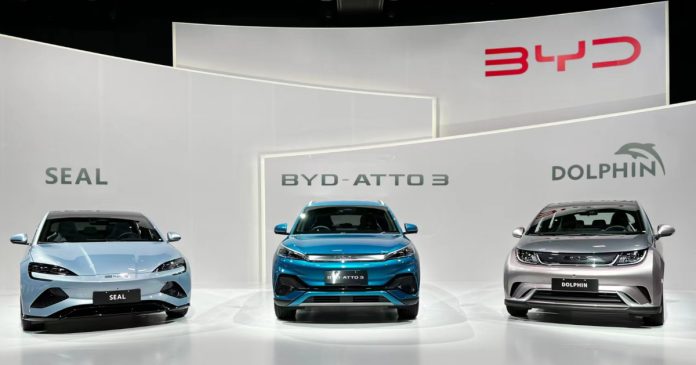Brazilian Vehicles Market’s first step into 2024 was quite fast. Despite this trend, new car sales in March reached 175,982 (-5.7%). While the battle for the leadership is still a Fiat vs Volkswagen affair, behind the Chinese BYD jumped in 10th place, up 13 spots.
Market Trend and Outlook
Brazil’s economy has been surprisingly resilient this year. Deloitte states: “Inflation-adjusted wages continue to grow at a relatively rapid clip as consumer price growth slowed. More recently, the labor market has tightened, and consumer confidence has soared. As a result, consumer spending is growing at a respectable rate. Pushing inflation lower will be more challenging from here. A lack of improvement on the inflation front will likely restrain consumer spending as real wage growth and interest-rate cuts slow.”
This growth in consumer spending has pushed the Brazilian Vehicles Market higher and higher, reporting 175,982 new sales in March, down 5.7% from the previous one. YTD sales reach 483,327 units (+10.6%).
Looking at cumulative data from March 2024 brand-wise, Fiat reported the most sales at 101,514 (+5.0%), followed by Volkswagen -up 1 spot- at 76,829 (+28.7%) and Chevrolet -down 1 spot- with 56,903 sales (-20.2%).
In 4th rank, Toyota with 41,972 sales (-0.2%), followed by Hyundai at 37,196 (+1.9%), Renault -up 1 spot- with 26,732 (+1.6%), Jeep -down 1 spot- with 25,654 (-19.3%), Nissan with 19,565 sales (+30.8%) and Honda with 17,013 (+19.9%).
BYD grows 13 spots while ranking in 10th spot, reporting 14,941 new vehicle registrations (+2049.8%).
Looking at specific models the Volkswagen Polo becomes the best-selling car, while growing 93.7% in year-on-year volume. Last year’s leader Fiat Strada followed in second with a +11.8% increase.
Medium-Term Market Trend
The Brazilian vehicles market has had a few ups and downs in the past decade, with 2012 registering the highest levels for the following years. Previously, starting in 2010, the market rose for two consecutive years reaching 3.6 million sales in 2012. In 2013 the Brazilian market began a 4 year negative trend falling a maximum of 25.6% in 2015 and reaching 2 million sales in 2016. Luckily from 2017 to 2019 sales grew, reaching 2.7 million sales.
In 2020 The COVID-19 pandemic has caused severe human suffering and triggered a deep recession in Brazil. The demand for consumer’s goods declined and light vehicles sales fell below the 2 million mark, first time in the decade.
Although the economy recovered in 2021 (GDP +5.0%) the basic trend was still weak. In fact, 2022 slowed down 0.9% with inflation rates jumping up and the demand remaining weak.
Projections for 2023 were not looking good due to the continuous price increases in parallel with the adoption of more safety rules and the shift towards electrification. Despite this 2023 reported a total of 2.18 million sales, posting an 11.3% increase from the prior year.
Tables with sales figures
In the tables below we report sales for all Brands, top 10 Manufacturer Groups, and top 10 Models.











